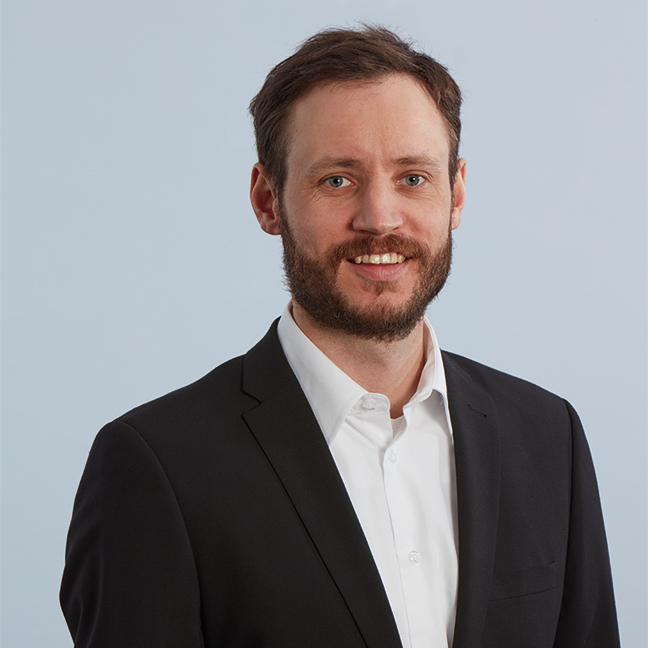InfoGuard AG (Headquarter)
Lindenstrasse 10
6340 Baar
Switzerland
InfoGuard AG
Stauffacherstrasse 141
3014 Bern
Switzerland
InfoGuard Deutschland GmbH
Frankfurter Straße 233
63263 Neu-Isenburg
Germany
InfoGuard Deutschland GmbH
Landsberger Straße 302
80687 Munich
Germany
InfoGuard Deutschland GmbH
Am Gierath 20A
40885 Ratingen
Germany
InfoGuard GmbH
Kohlmarkt 8-10
1010 Vienna
Austria
Switzerland - a dream for cyber security experts

The life of a cyber security expert is a dream come true with the current demand in the labour market. There are few careers where specialists can choose not only their future employer but also the country itself, a privilege that is anything but a given. Why am I telling you this? Because I (like some of my colleagues) moved to Switzerland to work for InfoGuard. You can find out why in this blog article. I will tell you about my reasons for taking this decision, as well as about my experiences and I can give you some valuable tips. First of all, I must say that it was one of the best decisions I ever made to move to Switzerland to work for InfoGuard.
I can still remember the time in 2015 when a headhunter contacted me and thought he had the perfect job for me - but it was in Switzerland. At that time I worked as a Senior Penetration Tester in my home town of Vienna, but it took me three more years before I decided that InfoGuard was the right employer for me. What took so long? In order for me to take this radical decision, I had to answer three crucial questions for myself - questions that everyone probably asks themselves at times like these...
- What are the benefits of moving to Switzerland?
- How costly is a move to Switzerland and what do I need to bear in mind?
- What are the benefits of the potential employer, in my case InfoGuard?
Of course, I am happy to share my thoughts on this with you.
What are the benefits of moving to Switzerland?
Switzerland is one of the wealthiest countries in the world, and at the same time, it has low taxes - a convenient combination in my opinion. It also enjoys an excellent international reputation, which can be attributed, among other things, to the Swiss people's flexibility and determination as well as their work ethic and awareness of quality. These are all values I strongly identify with. Furthermore, part-time work is commonplace in Switzerland, something that experience has shown that international companies tend to be reluctant to see.
Even before I joined InfoGuard, I had been working as an expat in Basle, Geneva and Zurich. Even then, I liked the openness and friendliness of the Swiss and the diversity of the country with its different language regions, the sense of internationalism and tradition, and the beautiful geography. The flat areas in the north and the high alpine region in the south mean that there is something for every taste.
There is also no shortage of leisure activities on offer, quite the opposite, and there is a lake for swimming or a forest for recreation practically in front of every door. Day trips on public transport, for example to the beautiful Italian-speaking canton of Ticino, or to Milan or Geneva, can be done with ease. Switzerland's central location is another positive point. The good connections by plane or train mean that I can get back to my home town quickly at any time. Speaking of trains, even if you sometimes hear criticism here and there, believe me, the public transport network in Switzerland is excellent!
Among my personal favourites are definitely the numerous beautiful mountains, where I can be found almost every weekend in winter.
Why work for InfoGuard?
You might have noticed that I am still very enthusiastic about Switzerland but even if I would be happy travelling around the country all day long, I still have to spend the majority of my time at work, so it is extremely important that there is a pleasant working environment and that you enjoy the work.
Even after the first enquiries, I made into InfoGuard, my impression was extremely positive, and this impression intensified after my first visit to the Baar site. By now it was clear that this is where I wanted to work! The most important reasons for my decision were the following:
- InfoGuard boasts a highly professional, qualified Blue and Red team. The two teams always have access to the latest state-of-the-art technologies, which is not just cool; it also means they can work effectively and efficiently. I quickly realised that this coexistence was not only enormously helpful for my own development, but also for the company. InfoGuard takes all the necessary measures to successfully fend off attacks on one hand and to detect them at an early stage on the other.
- As a member of the Red Team, I have what is known as "research time" available to me. This enables us to develop and enhance the existing internal Red Teaming frameworks for attack preparation and execution.
- The three business divisions - Consulting, Engineering and Cyber Defence - cover all areas of Cyber Security, providing virtually 360° coverage. This facilitates interdisciplinary work, the direct exchange of knowledge among the respective specialist colleagues and access to special manufacturer-specific expertise.
- InfoGuard is itself ISO 27001 certified. It was important for me to work for a company that not only sets standards in cyber security but also actively practices them. In my opinion, this is essential for a company's credibility, and this is why InfoGuard enjoys an excellent reputation and has customers from a wide variety of sectors and of all sizes.
- Last but not least, the working atmosphere at InfoGuard is just great! I particularly appreciate the directness, team spirit, openness and transparency. Unlike previous jobs, there is no problem if you decide spontaneously to work from home. InfoGuard also actively promotes employee training.
How expensive is it to move to Switzerland?
As an EU citizen, obtaining a residence permit with an employment contract is surprisingly easy. I just had to do two things in advance: submit the application form for a work permit and organise somewhere to live. Everything else was so straightforward that I could do it at my own speed once I got here. If you're now thinking about coming to Switzerland, I have summarised the most important points for you, plus a few tips:
- Residence permit: Employees must apply for a work permit in the canton of residence (not the work address!) within two weeks of entering the country. EU citizens should apply for the B permit, which is valid for five years. The procedure is not at all bureaucratic; you just fill in a one-page application form, enclose a copy of the employment contract and your passport and enclose a passport photo. It's that simple!
- Flats: Doing it from Vienna, it would have been pretty stressful to find the right flat, especially as I didn't know then exactly where I wanted to live. So at the start, for two months I rented a fully-furnished business flat. That way I could arrive with very little luggage and look around in my own time for a new home. The bill for the business apartment is considered to be a valid rental contract, which of course is both very practical and necessary to register for residence - which brings us to the next point.
- Residence registration: After moving in, you must register at your place of residence within 14 days. You must register in person and must have a copy of the employment contract, the rental agreement and a passport photo. The notification of residence is also important so that the residence permit can then be issued successfully, as the residence information is transferred to the immigration authorities. It is essential that you take confirmation of registration with you when you register, as this is required for any other administrative formalities or for closing a bank account.
- Health insurance: Within the first two weeks after entering the country, you need to take out health insurance. A copy of the health insurance must be sent to the local authority in which you reside.
- Moving: When you move household contents (including your car) to Switzerland, it is important to know that they must be older than six months and must have been used by you. This is particularly the case for cars. For the move, the "Application Form 18.44 Moving Goods" must be completed in advance and handed over upon entry to the customs office at the point of entry and in duplicate. It is also important to note that, depending on the customs office, moving at the weekend can only be done until noon on Saturdays. Entry at a later time or with incomplete documentation may lead to entry being refused.
Switzerland and InfoGuard - a real stroke of luck
Even though I have now listed quite a few things, I can assure you that the procedure is basically quite simple. So far I haven't regretted my decision for a second! In InfoGuard, I have found an employer that allows me to make full use of my skills and continue my professional development. And you've probably already noticed that I have fallen head over heels in love with Switzerland. InfoGuard has enabled me to rapidly develop both professionally and personally, but the move, in general, has also significantly contributed to a better quality of life.
If I have now got you thinking about moving to Switzerland, or just looking for a new challenge in Cyber Security, I have some good news for you. I and my colleagues at InfoGuard are constantly looking for additional members of staff - in consulting, engineering or in the Cyber Defence team. Our website is constantly being updated with job vacancies. Training for new specialists is also very important for us, which is why InfoGuard also offers young people a practical introduction to the varied world of work in Cyber Security. Just have a look at our website and learn more about the options and benefits!
Blog

NIS2, CRA, KRITIS und der 6. März: Jetzt zählt die nachweisbare Umsetzung!

ISMS nach ISO 27001 schnell implementieren? Ein Realitätscheck.


